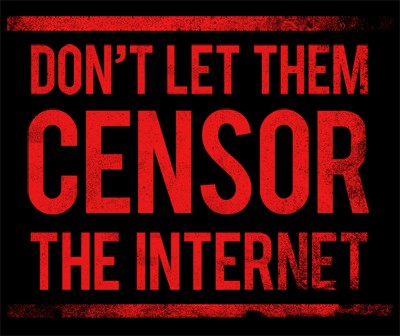
Momentum Builds Against SOPA and PIPA
Tomorrow you might be wondering who turned out the lights. Don’t worry — it will simply be one of the biggest days in the history of the open Internet.
Thousands of websites — including Wikipedia, reddit, BoingBoing, FreePress.net and SavetheInternet.com — will go dark to protest the Stop Online Piracy Act (SOPA) and Protect IP Act (PIPA), bills in the House and Senate that could open the door to widespread censorship online.
Meanwhile, hundreds of supporters of the open Internet will gather outside the Manhattan offices of New York Senators Chuck Schumer and Kirsten Gillibrand to urge them — both are sponsors of PIPA — to change course and oppose this legislation.
Millions of Internet users have succeeded in slowing down the Hollywood-funded momentum of these bills. A House vote on SOPA has now been indefinitely postponed. And the mainstream media, which had largely failed to cover what is arguably the biggest tech story of the year, are finally waking up. Last weekend, MSNBC’s Chris Hayes devoted an entire segment to a debate on the legislation. Meanwhile, Senate Majority Leader Harry Reid defended PIPA on Meet the Press last Sunday (hey, at least it got covered!).
Just in time for tomorrow’s blackout, the White House has announced its opposition to provisions in both bills that pose a threat to free speech. And even Google is altering its valuable homepage to include a note protesting SOPA and PIPA.
A casual observer of all this activity — Wikipedia is really going dark? Google is really changing up its homepage? — might wonder what all the fuss is about. Here, in a nutshell, is why tech companies, individual Internet users, members of Congress and the White House have all expressed grave concerns about legislation that could usher in a new wave of online censorship.
Supporters claim that SOPA and PIPA are the only way to effectively fight online piracy. But while the rights of content holders need to be protected, these bills are the wrong way to address this issue. If they are passed, corporations (with the help of the courts) will become the arbiters of what is and isn’t lawful online activity, with millions of Internet users swept in their nets as collateral damage.
Both bills are said to target only foreign websites that are explicitly in the business of promoting copyright-infringing content. But they would do much to harm the global Internet, and a provision in both bills would allow tampering with the Internet’s technical infrastructure in a way that Internet engineers agree would harm online security.
Another provision would empower private companies to go after any website — lawful or otherwise — they accuse of infringing on their copyright. Those companies could work with service providers and financial institutions to shut off access to the potentially offending sites, with no repercussions at all if the accused site is later judged to be lawful. Meanwhile, a falsely accused site could go belly up from all of the legal fees needed to defend itself.
Innocent until proven guilty, anyone?